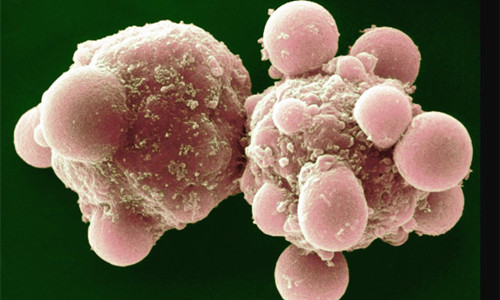Boehringer, Vanderbilt U to develop cancer MCL1 inhibitors in third team-up
March 16, 2018
Source: fiercebiotech
 645
645

Cancer cells are different from normal cells in that they can avoid a naturally programmed cell death process known as apoptosis and grow almost indefinitely. In their third collaboration, Boehringer Ingelheim and Vanderbilt University have their eyes on a target that helps cancer cells evade death.
The pair will focus on developing novel chemical therapeutics against the myeloid cell leukemia 1 (MCL1) protein, which scientists believe is responsible for that rogue growth and resistance to chemotherapy and is therefore a promising cancer target. The idea is to inhibit the overexpressed “pro-survival protein” (or “anti-apoptotic protein”) so programed cell death can take place in cancer cells.
“MCL1 is one of the top ten overexpressed genes in human cancer where it plays a role as a survival factor,” said Lawrence J. Marnett, Ph.D., dean of basic sciences in the Vanderbilt University School of Medicine, in a statement. The challenge is that MCL1 has been shown to interact with many other proteins, so “candidate drugs need to disrupt high affinity protein-protein interactions,” said Marnett.
BI and the university will build the research partnership on discoveries made in the lab of Stephen Fesik, Ph.D., a cancer researcher at Vanderbilt.
Fesik’s team has discovered and optimized a series of potent and selective MCL1 inhibitors that “exhibit picomolar binding affinity and mechanism-based cellular efficacy,” the team reported in a recent study published in the Journal of Medicinal Chemistry.
No approved therapies currently exist that directly target MCL1, but BI and Vanderbilt are not the only ones in the field. A team of Australian scientists previously found that MCL1 inhibitors could work in treating multiple myeloma, and they have a candidate dubbed S63845 in progress. Amgen’s AMG 176 and AstraZeneca’s AZD5991 are already in first-in-human studies on relapsed or refractory hematologic malignancies.
MCL1 marks the third joint project between BI and the Fesik lab. They are already working on drugs that directly target a cancer-causing mutation in the KRAS gene, and in their expanded partnership last year, on a novel target called SOS, which can indirectly regulate KRAS.
By Ddu
Read more on
- Drugdu.com’s 4 most Popular Veterinary APIs and Veterinary medicine Suppliers September 6, 2018
- 4 Pharmaceutical Machinery Packaging and Materials Suppliers September 6, 2018
- 3 ENT Equipment and Medical Anaesthesia Equipment Suppliers September 6, 2018
- Need Natural Plant Extracts? Here are 4 Suppliers! September 6, 2018
- Healthcare Products & Food Additives Suppliers for International Companies September 6, 2018
your submission has already been received.
OK
Subscribe
Please enter a valid Email address!
Submit
The most relevant industry news & insight will be sent to you every two weeks.



